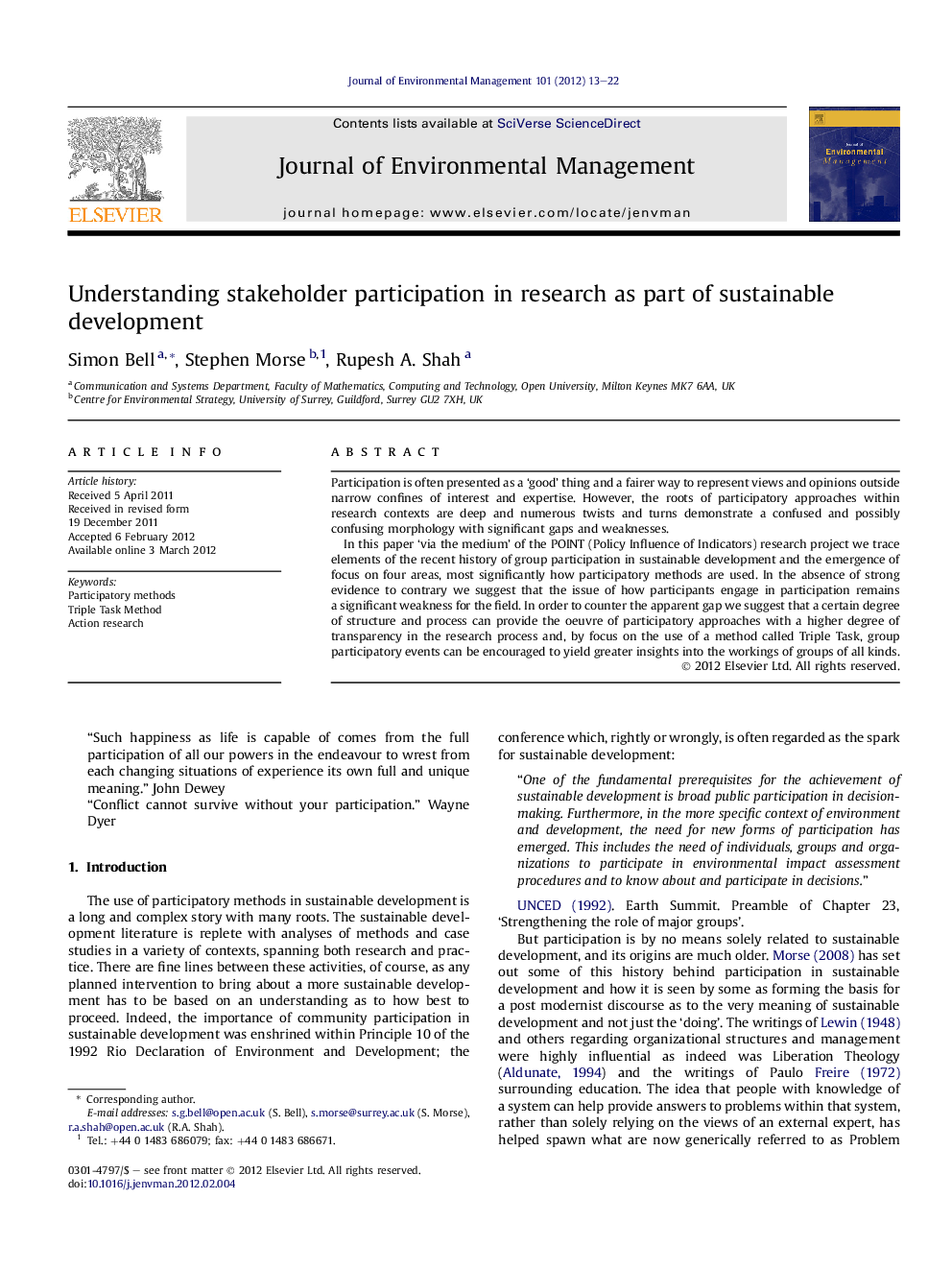| Article ID | Journal | Published Year | Pages | File Type |
|---|---|---|---|---|
| 1056831 | Journal of Environmental Management | 2012 | 10 Pages |
Participation is often presented as a ‘good’ thing and a fairer way to represent views and opinions outside narrow confines of interest and expertise. However, the roots of participatory approaches within research contexts are deep and numerous twists and turns demonstrate a confused and possibly confusing morphology with significant gaps and weaknesses.In this paper ‘via the medium’ of the POINT (Policy Influence of Indicators) research project we trace elements of the recent history of group participation in sustainable development and the emergence of focus on four areas, most significantly how participatory methods are used. In the absence of strong evidence to contrary we suggest that the issue of how participants engage in participation remains a significant weakness for the field. In order to counter the apparent gap we suggest that a certain degree of structure and process can provide the oeuvre of participatory approaches with a higher degree of transparency in the research process and, by focus on the use of a method called Triple Task, group participatory events can be encouraged to yield greater insights into the workings of groups of all kinds.
► Novel approach to group work. ► Focus on participation as a assessable process. ► Triple Task Theory. ► Triple Task Method.
